- Home
- Patrick Robinson
U.S.S. Seawolf am-4 Page 18
U.S.S. Seawolf am-4 Read online
Page 18
Everyone nodded. And the chairman continued, “Okay, now let’s try to formulate a rough plan, because we don’t have that much time. From that plan we’ll get some timing. As a point of principle, I think we should try to spring the crew, amid the mass confusion that there’s going to be in Canton when we split Seawolf’s nuclear reactor in half.”
“But how are we going to get a team in there?” asked Admiral Mulligan.
“With great difficulty, probably,” said Arnold Morgan. “But let’s stay with step one, how to destroy the submarine while she’s moored alongside in Canton. We got a bomb expert in here?”
“Not really,” said the CNO.
“I’ll get one,” interjected General Scannell, and he took from his pocket a slimline mobile phone and hit one button that patched him straight into his office, and everyone heard him say, “Get ahold of General Cale Carter, and have him send in the Air Force’s number one bombing expert…Situation Room, White House, inside the hour…tell him I’d prefer he came in person if he could…yup…right…’bye.”
They adjourned to a small private dining room at 2030, just as Vice Admiral Bergstrom landed on the White House lawn in a Navy helicopter from Andrews. Fifteen minutes later General Carter, a Southerner from Alabama, arrived and joined them for an excellent dinner organized by Admiral Morgan. In a sense it reflected his precise instructions to the chef: “Sirloin steak, medium rare…roast potatoes and whatever green vegetables you like…salad, but no rice, for Christ’s sake no rice, and nothing stir-fried.”
There were bottles of sparkling mineral water on the table, plus an ice-cold bottle of California sauvignon blanc — the admiral had growled that he never touched Chardonnay until after Labor Day.
No one tasted the wine, except for the President, who needed it, and Admiral Morgan, who wanted it. Between them they polished off the bottle while they brought General Carter up-to-date on the proposed bombing raid. The only opinion Admiral Morgan offered was that he favored a high-level bomb, from say 50,000 feet above the Pearl River, rather than a missile or a sea-skimmer.
General Carter nodded thoughtfully and said he’d like to make a few notes and then offer his opinion back in the Situation Room, where he could pull up a chart of the Pearl River Delta and “go professional on y’all.”
It was after 10:00 P.M. when Admiral Morgan finally had the meeting rearranged to watch General Carter make his recommendations in front of the large computer screen at the end of the Situation Room.
“Mr. President, Admiral Morgan, gentlemen, I’d like to start by saying we can most certainly hit and destroy USS Seawolf. The challenge, as I understand it, is that you don’t want anyone to know we did it?”
Admiral Morgan nodded.
“Well, that means we need to be real careful about how we deliver the bomb. The common misconception, however, is that the higher you are, the farther away from the target, as it were, the less chance you have of being detected. And that ain’t true. ’Specially near a naval or military base where there’s likely to be a lot of radar.
“Fact is, you’re more likely to be detected if you fly, high than if you fly really low. Now, using the terrain of the land surrounding the Delta, I’d say you’d be better with a low-level flight. Because if you stay at two hundred and fifty feet above the water, straight up the middle here, you will not be detected. You’ll be below the radars, which cannot find you, and you have the added cover of the land, which makes detection unlikely.
“Judging from where the navy base is, I’d say it was almost certain you would be detected flying at fifty thousand feet. Whatever stealth bomber we send, I think they’d catch it on the screen. I’m only guessing, but Chinese surveillance is probably on high alert while that submarine’s parked right there in the dockyards.
“So, gentlemen, I’m recommending we deliver the bomb in a regular Navy F/A-18 Hornet. I like the aircraft. It’s fast, makes well over one thousand mph, you can fly it off a carrier, and it’s capable of carrying a bomb underneath weighing almost eight tons. The weapon I have in mind is the laser-guided Paveway Three, type GBU-24, made by Raytheon. It’s about fourteen feet long and weighs only a ton, very nearly half of which is high explosives. That thing’ll rip right through the casing of a submarine and straight into the reactor room like spearing an ole crawfish.
“Your pilot should use the old technique of toss-bombing. By that I mean he wants to come on in up the Delta with his throttles open wide, two hundred and fifty feet above the surface, making one thousand knots plus. ’Bout five miles before the target I wanna see him raise the nose on that Hornet to about forty-five degrees, climbing like a bullet, then release that bomb at the highest possible speed. That’ll have the effect of throwing it high, maybe another three thousand feet. Right then it’ll turn over and start dropping quietly toward its target.
“Its guidance system’s gonna be seeking the reflected light from the laser, looking for the marker, adjusting its trajectory to hit the middle of it, adjusting its fins as it flies, making its corrections.
“Long before the bomb hits, the attacking aircraft will be out and away — past Hong Kong seventy miles to the south in a little over four minutes. And by the time he hits the open water of the South China Sea, the submarine and everything anywhere near it will be radioactive history.”
“Thank you, General,” said Admiral Morgan. “I really appreciate that.”
“However, there is one further problem you may or may not have considered,” said the Air Force chief.
“Lay it on us,” replied the admiral.
“You will have to illuminate the target. We can program the bomb’s strike zone accurate to fifty feet. But that’s no good to you, is it? You want it accurate to five feet, so it hits the reactor room. If it misses by, say, ten feet, you’ll just punch a big hole in the submarine and blow some of it up. But you won’t blast the reactor room. To do that you gotta penetrate it with the bomb. That means you have to light up your target. And I’m not sure if you have anyone to do that.”
“I’m not sure, either,” said Arnold Morgan. “Jake, how’re we placed in Canton?”
Jake Raeburn, head of the CIA’s Far Eastern Desk, spoke up for the first time. “Admiral, we have several field operators in the area, three in Canton, one of ’em in the base. He’s the best of them. He’s Chinese, hates the regime, had a cousin killed in Tiananmen Square in 1989.”
“Not in the Navy, is he?”
“No, he’s a civilian electrician, been very valuable for several years. But he wants to bring his wife and son to America, which he’s been promised. If he could pull this off, it’d be his last mission. I don’t want him to die of radiation sickness.”
“What kind of gear do we need in there, Cale?” asked General Scannell.
“The device is small, electronic, with its own power pack. Trouble is, it doesn’t last that long. Once it’s aimed and switched on, we got about six hours before it dies on us.”
“You mean we’re not talking about a hand-held device that a man would aim at the correct spot on the submarine?” asked the President.
“Nossir. Someone’s gotta get this little contraption hidden and fixed in place beforehand, then switch it on when we’re all set, then get the hell out before the bomb arrives.”
“Can we do it, Jake…I mean, illuminate the target?” asked Admiral Morgan.
“Yessir.”
The chairman was inclined to adjourn the meeting at 2300, because he wanted to spend a couple of hours with Admiral Bergstrom. But just as he began his summing up, there was a sharp knock on the door, and a uniformed guard entered with an envelope for the National Security Adviser.
He read the message swiftly, direct from Langley: “All prisoners observed leaving Canton jail by military trucks. Moved back to heavily guarded Navy dockyard — app. midday Saturday. Impossible to observe future movements in there. Our usual surveillance in place Pearl River.”
“Might be good, might be bad,” growle
d Morgan. “They’ve moved the prisoners out of that Canton jail, taken ’em back to the dockyard. And that’s not all bad. The Canton jail was just about the worst possible place for us to get ’em out, bang in the middle of a well-organized city with a lot of military personnel in residence. In my view they’re taking them somewhere else. And the only reason they’ve gone back to the dockyard is because they’re traveling by sea, otherwise they’da gone to an airport or straight on by truck, right?”
“Guess they could be keeping them incarcerated in the navy base,” suggested the President.
“If they’d had that facility, sir, they never would have moved ’em in the first place,” replied the admiral. “My judgment is they’re on the move to a military jail that’s been specially prepared for them.
“Jake, we have to find them. Fast.”
With that, the chairman called the meeting off for the night, and suggested they reconvene right there at 1100 tomorrow. “I want to get a few things done before we start,” he added. Then he stood, thanked everyone individually, and motioned for the exhausted Admiral Bergstrom to follow him down to his West Wing lair. “We got some serious talking to do. Same subject.”
Admiral Bergstrom rolled his eyes heavenward. And trudged after Arnold Morgan, who was now heading toward his second successive night without sleep. He sent for coffee and a couple of glasses of brandy to keep them awake. And then he spoke quietly to the SEALs boss. “John, you know my views about your guys. I’d rather have a couple of dozen SEALs than four thousand bombs.”
He referred of course to the elite warrior troops of the U.S. Armed Forces. SEAL stands for Sea Air and Land, and the U.S. Navy runs six teams, each comprising 225 men. Three of them work out of Little Creek, Virginia, numbered two, four, and six. Numbers one, three, and five operate out of the island of Coronado, San Diego, home of the U.S. Navy’s Special War Command — SPECWARCOM in the trade — which oversees all SEAL missions everywhere in the world.
The SEALs have had a short but valorous history, never once having left any man dead or wounded on the battlefield, not even in Vietnam. Their brutal training is comparable only to Great Britain’s SAS regiment, and military men always point out that it’s harder to become a SEAL than to graduate from Harvard Law School. John Bergstrom had earned his present command after serving with the SEALs as a team leader for several years. Now 61, he had retained his hard-trained physique. He stood six feet two inches tall, and his sleek dark hair was in the process of turning gun-gray.
His wife had died six years earlier, and he had never quite gotten over it. But he was a hugely popular man, both in the military and beyond. His personality was frequently lit up by a deep, amused chuckle, the kind of wry look at the world that comes essentially to those who have faced huge dangers and nowadays regard the rest of it as child’s play. He was probably the best Special Forces Commander the Navy ever had, which was why he had occupied the Big Chair at SPECWARCOM longer than anyone else ever had. He and Arnold Morgan had a profound mutual respect.
They sipped their coffee slowly, both men pondering the mammoth task that lay ahead. “Since you don’t want me to drive the Hornet up the Delta, Arnie, I guess you want me to get the guys out, right?”
Arnold Morgan smiled. “I expect you guessed from the conversation you just heard that the President’s son Linus is the XO on Seawolf?”
“I knew that a month ago. And now he’s in a Chinese slammer. That, Arnie, is not good.”
“Not good. Much worse. He’s between Chinese slammers, and we don’t know where the hell the second one is gonna be.”
“First time I’ve ever been asked to attack a place that ain’t yet on the map.” Vice Admiral Bergstrom chuckled, somewhat mirthlessly. “But I’ll tell you one thing, if they keep them in the Navy dockyard at Canton, there’s no way I’m sending my guys in, because that would be a suicide mission. And my SEALs don’t do suicide. They’re too expensive.”
“John, there’s no way I’d ask that, mainly because an attack like that would damn nearly amount to a declaration of war on China. Anyway, I agree, SEALs are not intended for that kind of frontal assault. That’s the Marine Corps. Also, I would not want American troops going into a radiation zone, which that dockyard is going to become.”
“Then you’re telling me that we may have to sacrifice the crew of Seawolf in order to destroy the submarine?”
“Yes, John. I suppose I am. But I’m also telling you that if it’s humanly possible to get them out, we’re going to do it.”
“Once we find them.”
“Correct. But in the meantime I want to get ready, and right here we’re looking at a project you and I have discussed many times.”
“You mean the formation of our treasured elite SEALs Strike Force, a big team of fifty guys, ready to enter a foreign country at a moment’s notice, stay undercover and then take out the enemy government, or leader, like Saddam, or Milosevic, or that fucking Saudi, whatsisname Bin Laden?”
“That’s the one, John. The elite of the elite. The finest team we can put together. Remember, we always said it would operate from an aircraft carrier, where the team’s commanding officer would form the mission headquarters. That’s what I have in mind.”
“You suggesting I start forming that team? And its first mission is to get the crew of Seawolf out of China?”
“Yes, John. That’s what I’m suggesting.”
“Jesus. This sounds big.”
“It’s the biggest. Our President, who’s without doubt the best friend the military ever had, is close to the breaking point…it’s the threat of the Chinese torturing his son for information.”
“You think they might?”
“Yes, I do…don’t you?”
“Yes, they might.”
“John, I also think the Chinese are never going to free them. When they begin the process of interrogation it will quickly move up to torture. And once that happens, they will make sure no one ever gets out to talk about it.”
“Will they put ’em on trial?”
“I would think so, then sentence them to long years of imprisonment, during which time they’ll all disappear. No one will live to talk about their experience.”
“Then we have to get ’em out.”
“Exactly. Which is why I want you to assemble the best team of guys you have ever assembled. Bring ’em in from Virginia Beach and Coronado, supplement them with two or three SAS guys from England, if you like. I wouldn’t mind a more international aspect to the team. But just make sure they’re the best we can get.
“If the Chinese move the crew to a military jail within striking range of the water, we’re going in, and we’re going to get the Seawolves out. And I do not give a sacred Chinese monkey’s ass if we have to kill every goddamned guard in the jail, we’re going in. And if we can’t find a leader with the balls for the job, I’ll lead ’em myself.”
“I didn’t realize you were still a serving officer, sir?” said Admiral Bergstrom, grinning.
“Recruit me, asshole,” replied Arnold Morgan. “I’m getting them out, and that’s final.”
“Two questions, Arnie. How do we get our guys in? And how do we get everyone out? We’ll probably need fifty SEALs in order to ransack a Chinese military jail. And there’s, what, a hundred, minimum, in the crew?”
“SUBMARINES, Johnny, SUBMARINES. Plus Zodiacs, using them as landing craft. CVBG parked a couple of hundred miles off.”
“Jesus, Arnie. You trying to start a war?”
“John, I’m not planning to get caught by the Chinese…at least not until we’re well clear with all the prisoners. Then they can do and think what they wish. And if they give us any trouble, we’ll sink ’em. Chinese pricks.”
“Arnold, what’s the time frame? Bearing in mind we don’t even know where they are right now?”
“The time frame is that we send in a recon team the first moment we locate the new jail. Then, three hours before the SEALs hit the beach, we bomb Seawolf in C
anton, causing maximum panic and confusion. Under the cover of that uproar, the boys go in. Which means that right now you get back in your helicopter, go to Andrews, get back in your plane, and go to San Diego. You put together your hit team, no expense or effort spared. And you fly them all out to Okinawa forty-eight hours from now. They board the carrier instantly, and prepare to go in.”
“You gottit. I guess. Assuming we can find the prisoners.” The SEALs boss rose, drained his brandy glass, picked up his briefcase, and walked to the door. He turned back once and grinned. “By the way, it is the considered opinion of SPECWARCOM that you, Admiral, are a piece of work. Thank Christ you’re on our side.”
1800 (local). Saturday. July 8.
Chinese Naval Base. Canton.
They had canceled the evening trip along the Pearl River on the big ferry that leaves from No. 1 Pier off the Yanjiang Road, east of the People’s Bridge, which left 170 mostly foreign passengers grumbling as loudly as it is wise to grumble in China. Softly, that is.
However, it was as well that they were not still on board, because this ferry was about to undertake a straight run to the ex-Japanese military jail on the northeast point of Xiachuan Dao, a six-mile-long island set four miles offshore, eighty miles west-sou’west of the port of Macao.
Admiral Zhang had not only commandeered the ferry, “in the name of the Navy of the People’s Republic.” He had also made ready the derelict jail in record time, sending in a military crew of 200 men to install the most modern communications systems, an. up-to-date electric lighting grid, brand-new plumbing, albeit with surface pipes, a water-heating system, desks, phones and an intercom for the command headquarters. There were also major repairs made to the cement walls and the two tall guard towers. The cells remained as they had been since the prisoners of the Revolution had been removed, shot, and buried in a mass grave in the late 1940s. The cells were not anything you’d care to recommend to a rat.

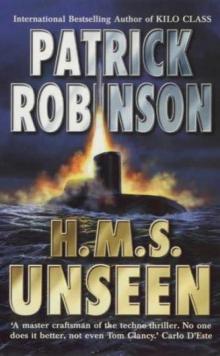 H.M.S. Unseen am-3
H.M.S. Unseen am-3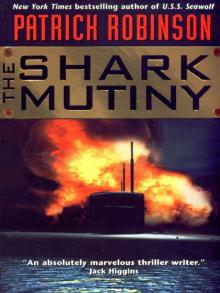 The Shark Mutiny (2001)
The Shark Mutiny (2001)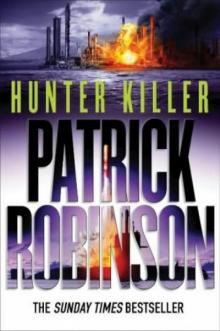 Hunter Killer am-8
Hunter Killer am-8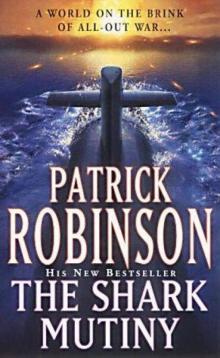 The Shark Mutiny am-5
The Shark Mutiny am-5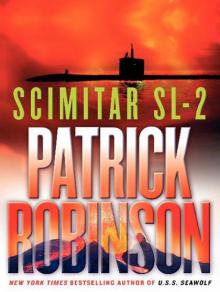 Scimitar SL-2
Scimitar SL-2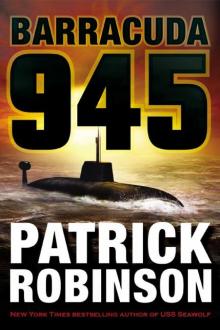 Barracuda 945 am-6
Barracuda 945 am-6 Hunter Killer
Hunter Killer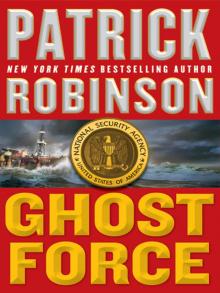 Ghost Force
Ghost Force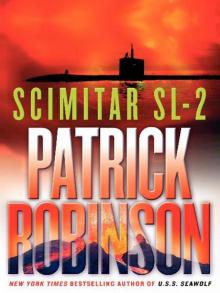 Scimitar SL-2 (2004)
Scimitar SL-2 (2004)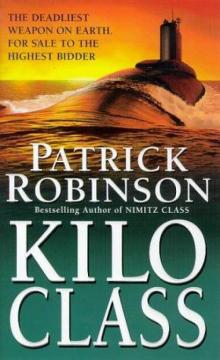 Kilo Class am-2
Kilo Class am-2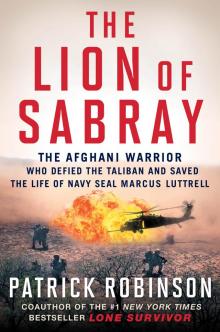 The Lion of Sabray
The Lion of Sabray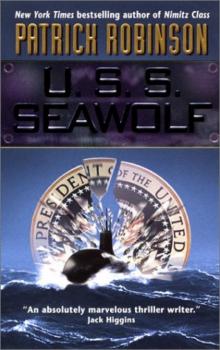 U.S.S. Seawolf am-4
U.S.S. Seawolf am-4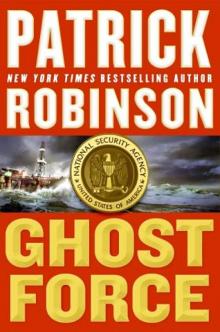 Ghost Force am-9
Ghost Force am-9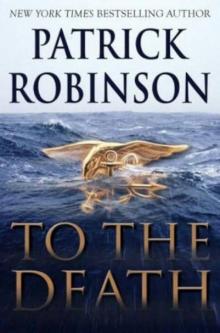 To the Death am-10
To the Death am-10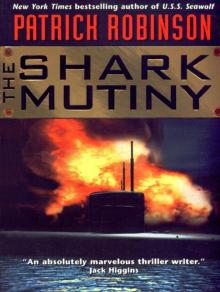 The Shark Mutiny
The Shark Mutiny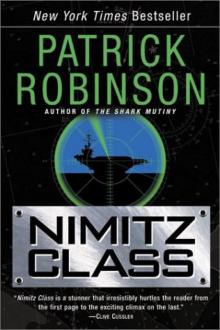 Nimitz Class am-1
Nimitz Class am-1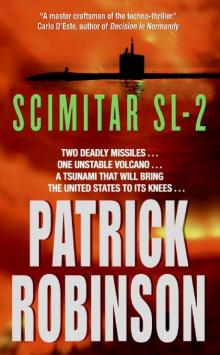 Scimitar SL-2 am-7
Scimitar SL-2 am-7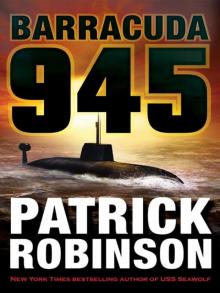 Barracuda 945
Barracuda 945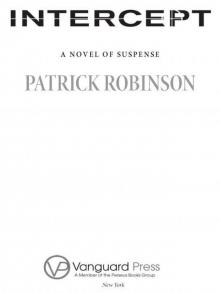 Intercept
Intercept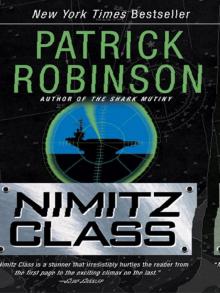 Nimitz Class (1997)
Nimitz Class (1997)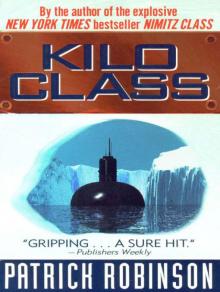 Kilo Class
Kilo Class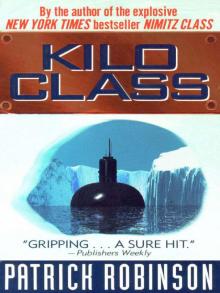 Kilo Class (1998)
Kilo Class (1998) Diamondhead
Diamondhead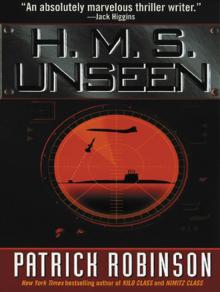 H.M.S. Unseen
H.M.S. Unseen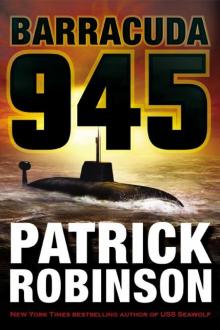 Barracuda 945 (2003)
Barracuda 945 (2003)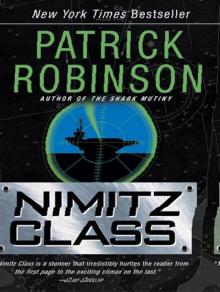 Nimitz Class
Nimitz Class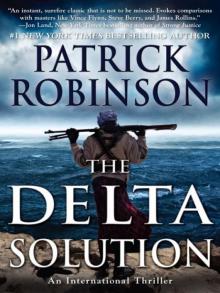 The Delta Solution
The Delta Solution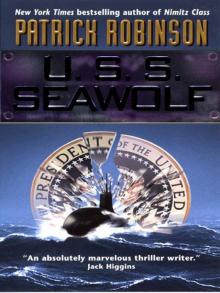 U.S.S. Seawolf
U.S.S. Seawolf